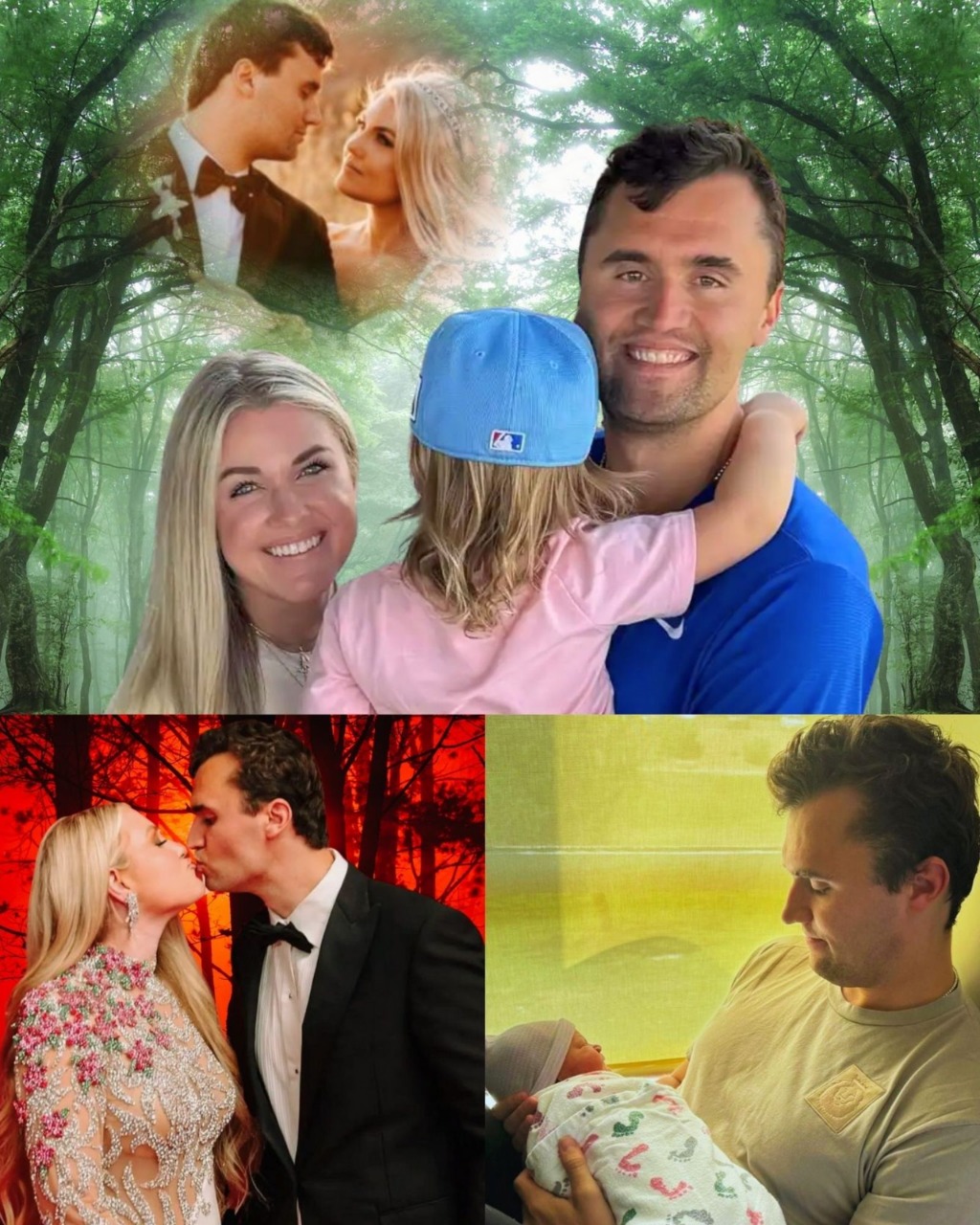Charlie Kirk’s Funeral in Phoenix: A Nation Mourns, A Family Remembers
The funeral of Charlie Kirk in Phoenix carried the weight of a nation’s grief. His flag-draped casket, flown home aboard Air Force Two, rested beneath white lilies and candlelight as dignitaries, family, and supporters filled the chapel. Yet, for all the solemn ceremony, the defining moment of the day came not from scripture or speeches, but from a simple family video — a glimpse of the man beyond the headlines.
A Widow’s Courage
When Erika Kirk rose to speak, the chapel fell silent. Dressed in black, her voice trembling but steady, she stood beside her children, close to the casket. “Charlie was not just a leader,” she said, pausing as tears filled her eyes. “He was the love of my life, and the best father our children could ever have.”
With her hand pressed to her heart, Erika introduced a video she had chosen to share. “I want you to see him as we did — as a husband, as a father, as the man who made us laugh even in the hardest days.”
The Video That Stopped the Room
The screen filled with a simple, tender scene: Charlie in his living room, kneeling on the floor, scooping his young daughter into his arms. Her laughter rang out, bright and innocent, as he whispered into her ear and kissed her cheek. In that moment, the chapel was transformed. Politics, ritual, and ceremony faded away — leaving only the intimacy of a father’s embrace and a child’s joy.

Gasps moved through the room. Tears streamed as Erika clutched her daughter’s hand, her shoulders shaking. It wasn’t a staged tribute, but memory itself — fragile, devastating, and offered in love.
A Nation’s Response
Within hours, the clip spread across social media, reaching millions. Families across America wept as they saw Charlie not as a public figure, but as a father whispering to his daughter.
“The hardest part,” Erika told mourners through tears, “is telling our daughter that her daddy is gone. I told her the only way I could — that Daddy went on a work trip with Jesus.” Those words, simple and searing, echoed across the country and became one of the most remembered moments of the service.
Dignitaries and Family Side by Side
Among those present were national leaders, including Vice President J.D. Vance and his wife, who had accompanied the family when the casket was flown home. Across the country, flags at half-staff marked the loss. But inside the chapel, the day never felt political. It was about Erika, her children, and the private cost of tragedy.
George Strait, Alan Jackson, and Vince Gill — invited to honor Charlie in song — sat in silence, visibly moved by the family’s tribute. For once, even music seemed unnecessary. The sound of a daughter’s laughter carried more power than any melody could.
The Defining Image
As the service ended, one image lingered: Erika standing beside her daughter, tears streaming, as they watched Charlie’s embrace replayed on the screen. That photograph, shared worldwide, came to symbolize not just grief, but resilience — the strength of a widow determined to carry her husband’s legacy forward.
For supporters, it became a rallying cry: that love and faith endure. For others, it was a reminder of the human truth behind every headline — the family left to mourn and carry on.
A Legacy Sealed in Grief
The funeral was filled with symbols — folded flags, scripture, soft hymns. But what endures is not ritual. It is Erika’s trembling voice, her tears, and that simple video of Charlie holding his daughter.
It was more than a tribute. It was a final goodbye. A reminder that behind every public life lies a private love, and behind every leader lies a family bearing the weight of loss.
As America wept with Erika, one truth became clear: Charlie Kirk’s legacy will not only be carried in speeches or politics, but in the laughter of his daughter, and the vow of a wife who whispered through tears — they will not erase your name.
